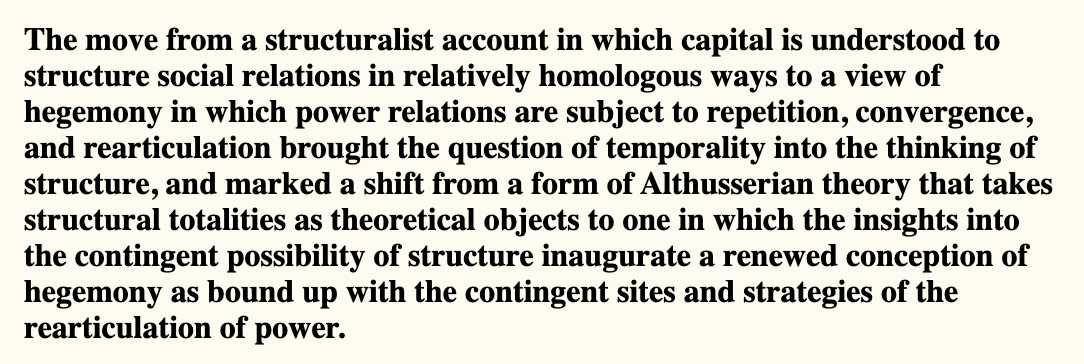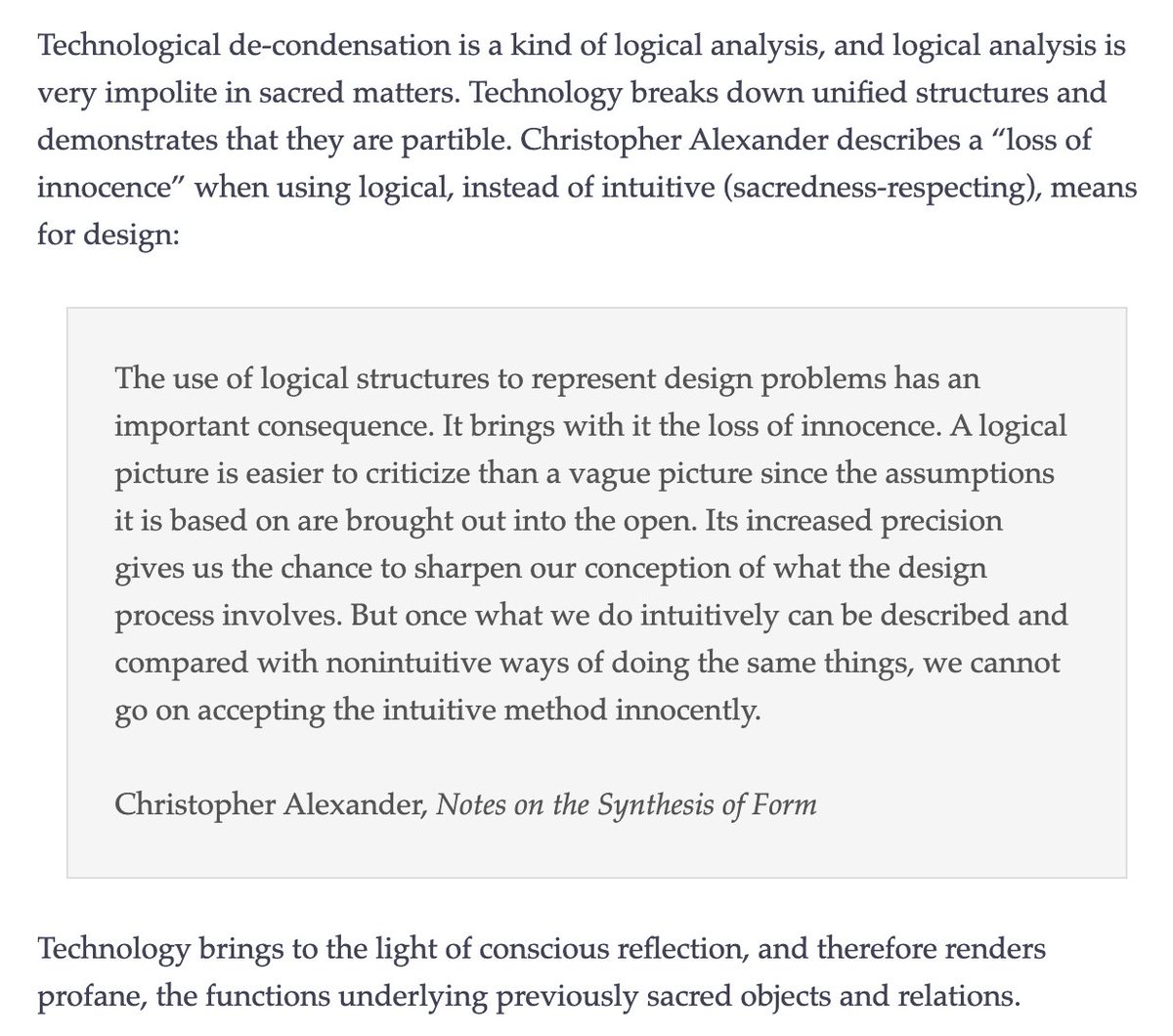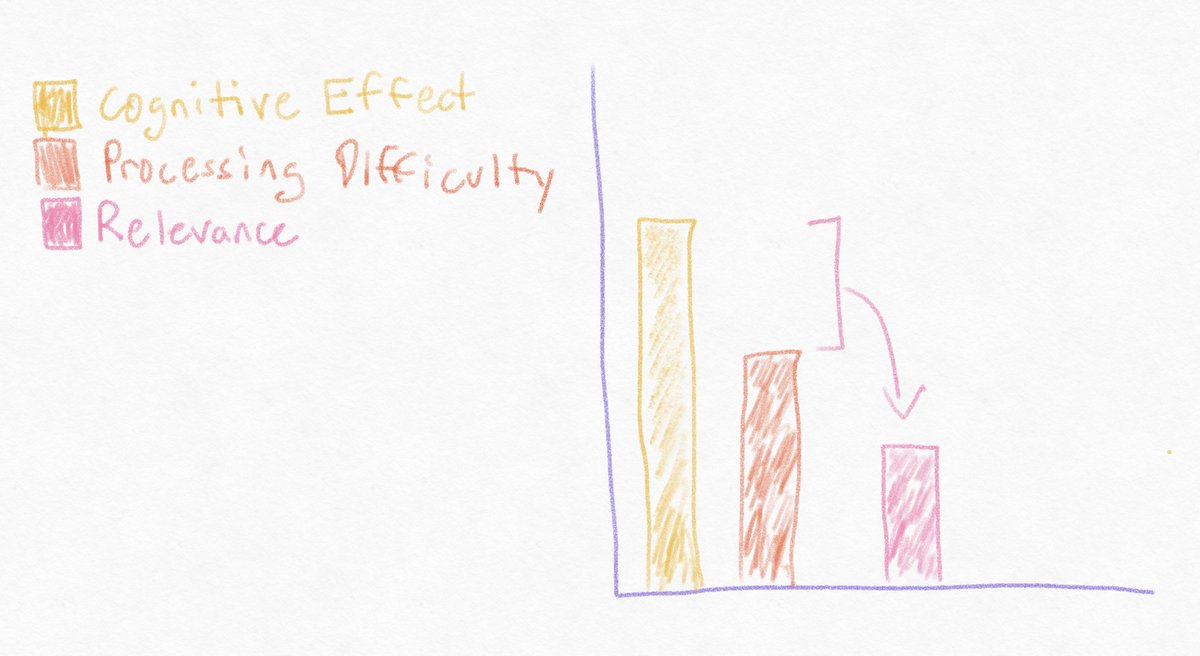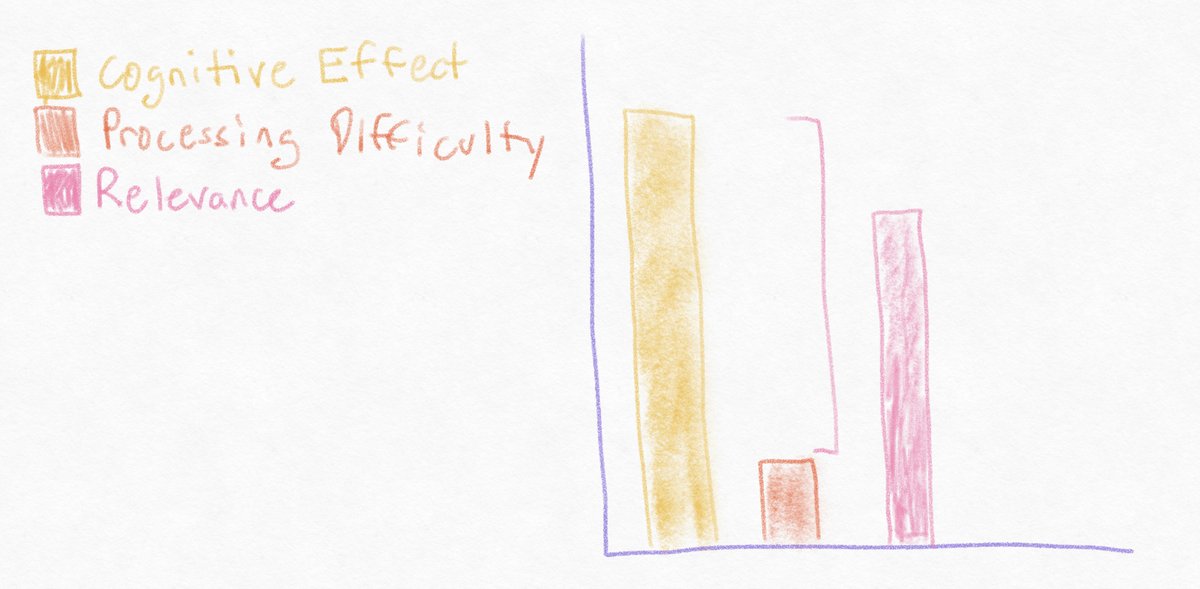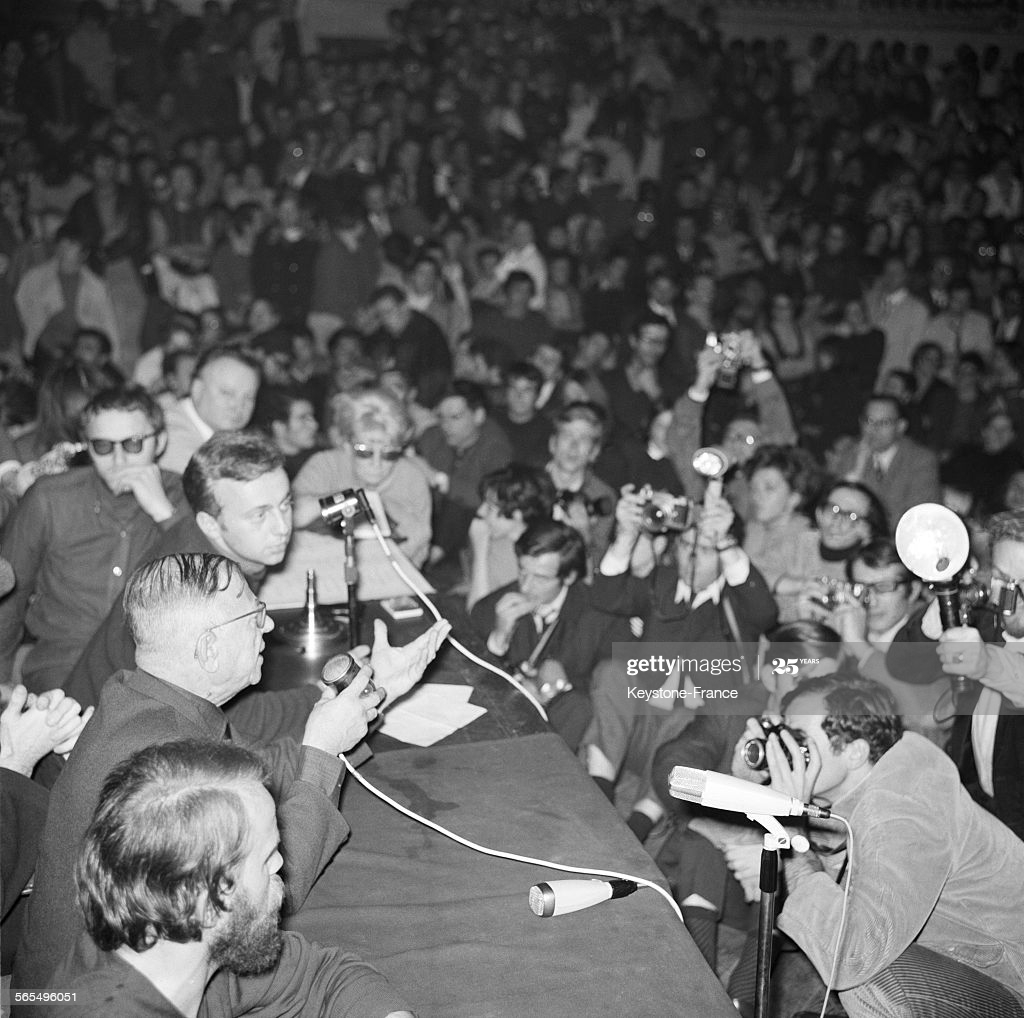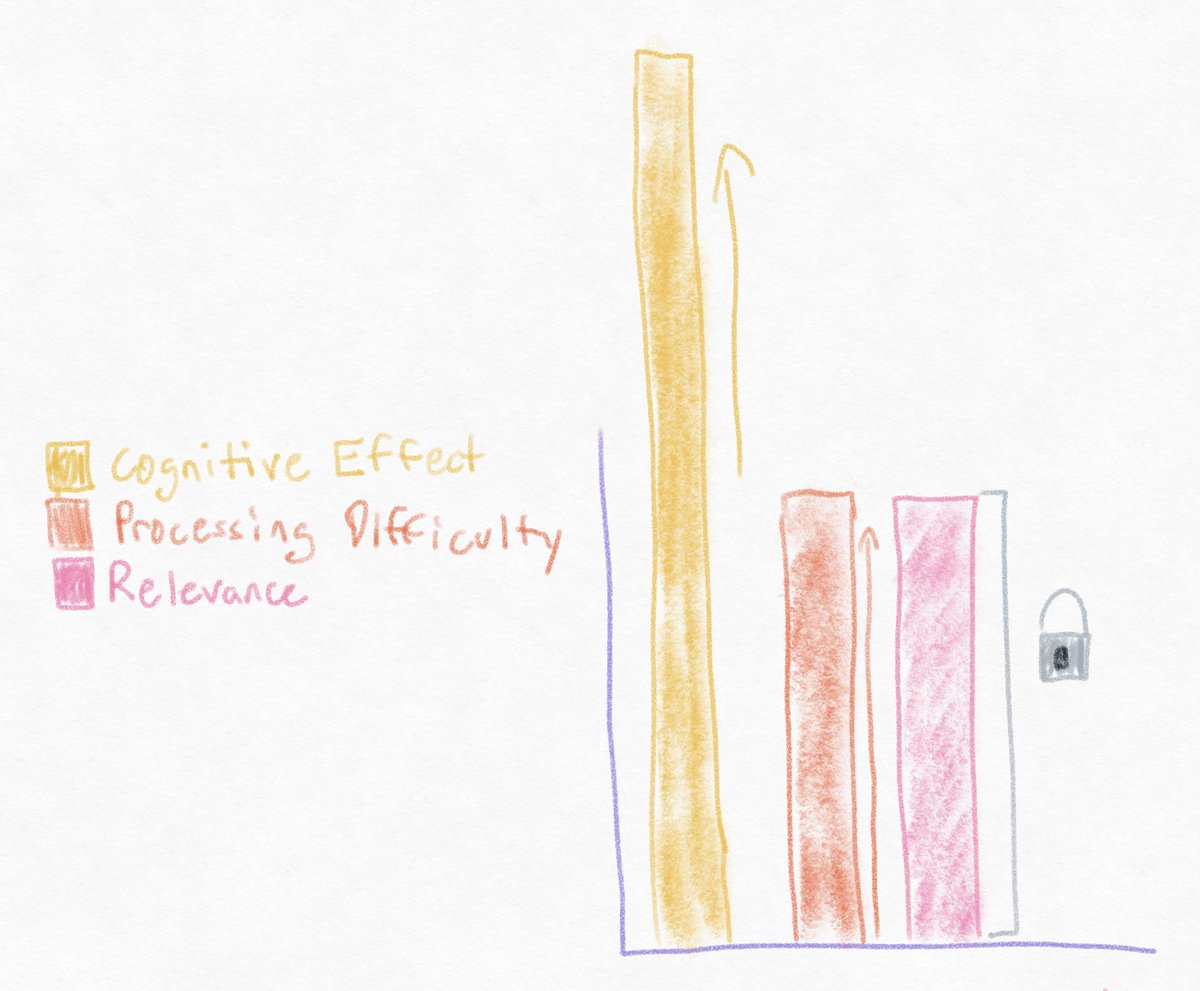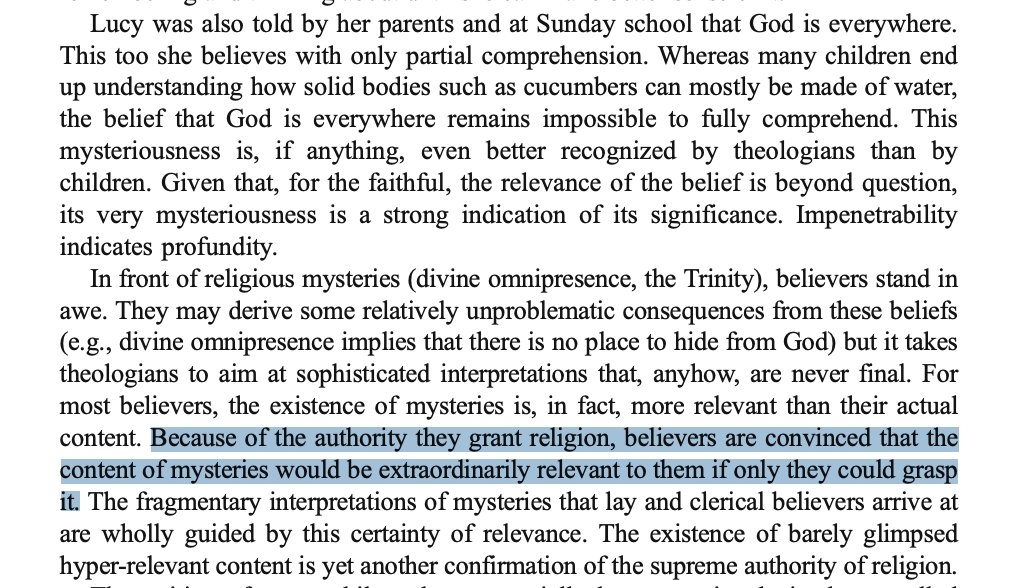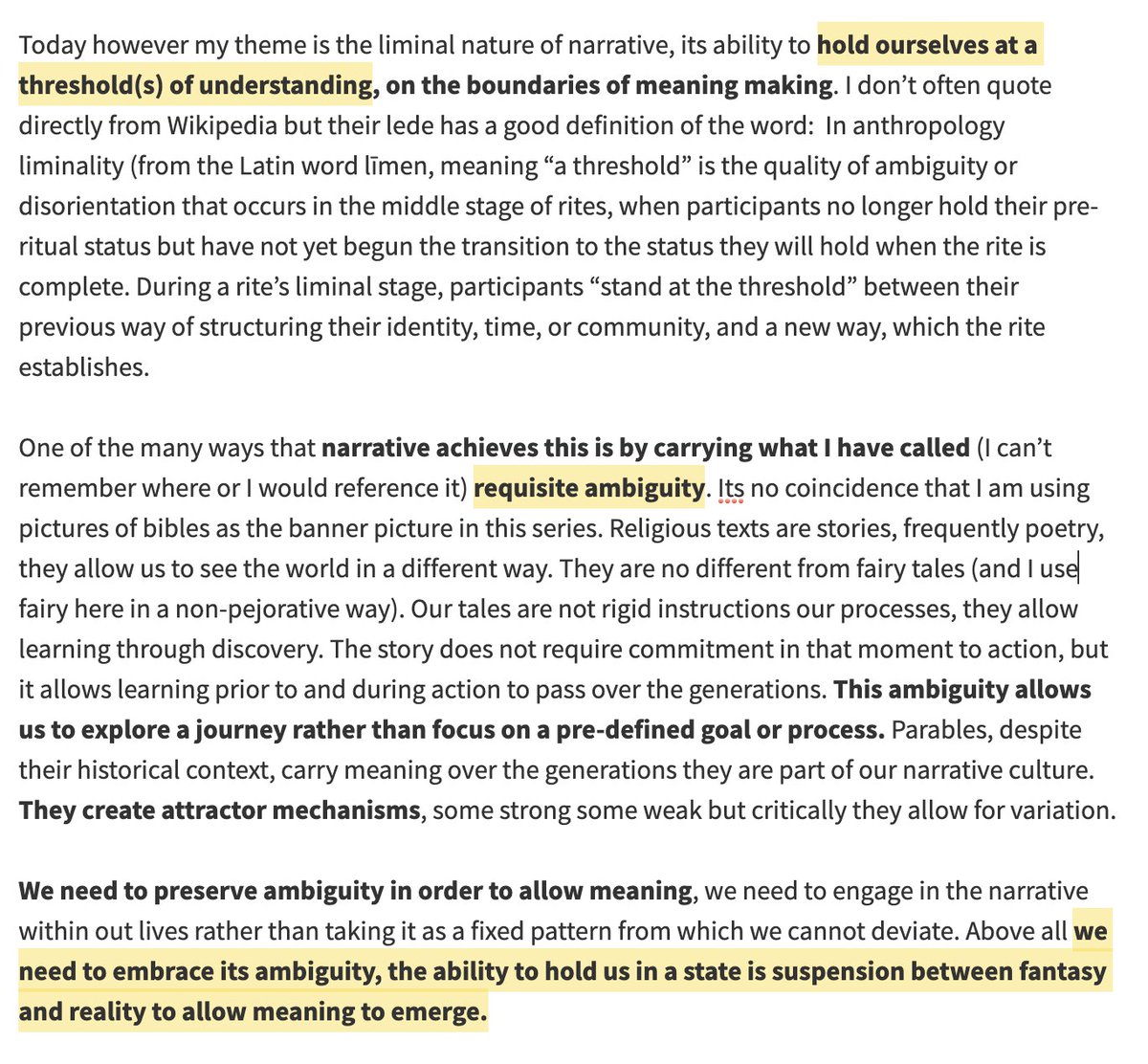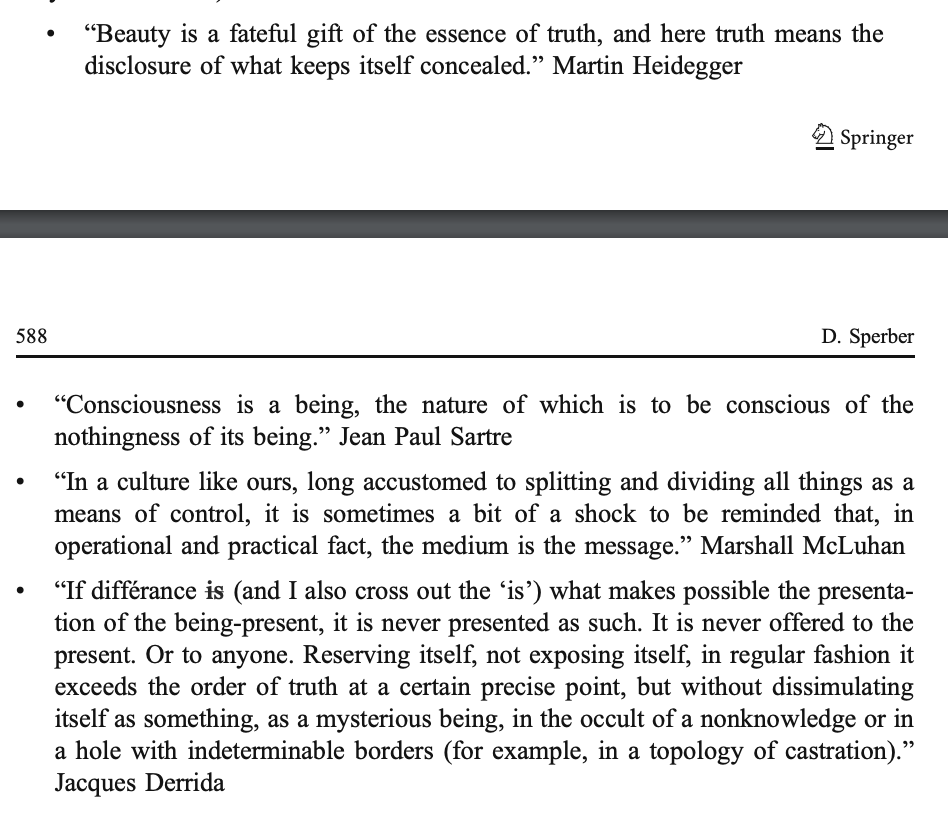It gives a pretty compelling explanation of why some intellectual and religious gurus build loyal followings despite being incomprehensible.
The general phenomenon will be familiar to anyone who has read a bit of philosophy. The Continental tradition and its PoMo offshoots are easy punching bags here.
This passage from Judith Butler, winner of the 1998 Bad Writing Contest, is a favorite:
This passage from Judith Butler, winner of the 1998 Bad Writing Contest, is a favorite:
As @Meaningness points out ( https://bit.ly/36FA0Dx ),">https://bit.ly/36FA0Dx&q... some of this obscurantism was a deliberate tactic to be taken more seriously. John Searle says as much about Michel Foucault below.
Sperber& #39;s account adds some color to why (beyond mere IQ-signaling) this tactic might work.
Sperber& #39;s account adds some color to why (beyond mere IQ-signaling) this tactic might work.
Importantly, this isn& #39;t an argument that there& #39;s no substance beneath the jargon and obscurity. That may or may not be the case w/r/t any given example.
And the PoMos aren& #39;t the only guilty parties. From another POV, I suspect the JBP clip below would be equally inscrutable:
And the PoMos aren& #39;t the only guilty parties. From another POV, I suspect the JBP clip below would be equally inscrutable:
Sperber starts by pointing out that we all have a psychological predisposition to trust AUTHORITY.
But we also (especially in the modern world) determine who to believe based on ARGUMENTATION.
Both are at play and interacting almost all the time.
But we also (especially in the modern world) determine who to believe based on ARGUMENTATION.
Both are at play and interacting almost all the time.
Because judgments of authority are pre-conscious and largely automatic, we can& #39;t inspect or criticize them.
This is both a fault (because we can be deceived) and a virtue (because it saves processing effort).
Argumentation can be consciously inspected but can feel meaningless.
This is both a fault (because we can be deceived) and a virtue (because it saves processing effort).
Argumentation can be consciously inspected but can feel meaningless.
Crucial to Sperber& #39;s account is his idea of RELEVANCE.
Relevance is both how we determine what to attend to and how we parse communication.
It& #39;s a kind of profit: the benefit of learning something (cognitive effect) minus the effort to understand it (processing difficulty).
Relevance is both how we determine what to attend to and how we parse communication.
It& #39;s a kind of profit: the benefit of learning something (cognitive effect) minus the effort to understand it (processing difficulty).
Clickbait is a way of hijacking this machinery.
SIX EASY TIPS TO TRANSFORM YOUR LIFE is a high-relevance communication: it promises both maximal reward and ease of interpretation.
Even if you consciously override this moments later, it& #39;s hard to escape the initial attraction.
SIX EASY TIPS TO TRANSFORM YOUR LIFE is a high-relevance communication: it promises both maximal reward and ease of interpretation.
Even if you consciously override this moments later, it& #39;s hard to escape the initial attraction.
So what& #39;s going on with Gurus?
For various reasons, we might form an A PRIORI judgment of high relevance. This might be because of someone& #39;s status, or their subject matter, or the crowd gathered around them.
It may even be because glimmers of real substance shine through.
For various reasons, we might form an A PRIORI judgment of high relevance. This might be because of someone& #39;s status, or their subject matter, or the crowd gathered around them.
It may even be because glimmers of real substance shine through.
But when judgments of relevance become fixed, every bit of extra processing effort becomes a promise of greater effect.
Instead of putting us off, the strain of interpreting a communication convinces us that it would be exceedingly profound, if only we could understand it.
Instead of putting us off, the strain of interpreting a communication convinces us that it would be exceedingly profound, if only we could understand it.
Religions take advantage of this.
The very obscurity of scripture, the fact that it eludes clear understanding, is what allows it to feel transcendentally meaningful.
This is true of stories more generally. Dave Snowden argues that narrative derives its power from "liminality."
The very obscurity of scripture, the fact that it eludes clear understanding, is what allows it to feel transcendentally meaningful.
This is true of stories more generally. Dave Snowden argues that narrative derives its power from "liminality."
The danger is what Sperber calls a "runaway phenomenon of over-appreciation" where we forget that what& #39;s being said doesn& #39;t make sense.
But it& #39;s interesting to think about communication as being on a spectrum from too obscure to be understood to too explicit to feel profound.
But it& #39;s interesting to think about communication as being on a spectrum from too obscure to be understood to too explicit to feel profound.
Might add more to this as I think about it but here is a link to the paper for anyone interested: http://www.dan.sperber.fr/wp-content/uploads/2010_the-guru-effect.pdf
And">https://www.dan.sperber.fr/wp-conten... some more amusing examples:
And">https://www.dan.sperber.fr/wp-conten... some more amusing examples:

 Read on Twitter
Read on Twitter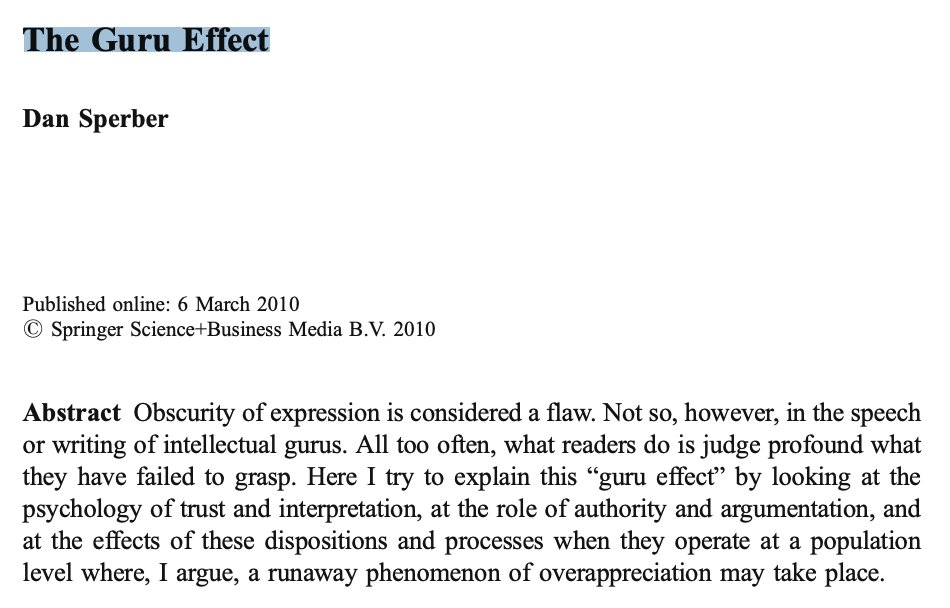 https://abs.twimg.com/emoji/v2/... draggable="false" alt="📝" title="Memo" aria-label="Emoji: Memo"> I& #39;ve found myself bringing up Dan Sperber& #39;s "Guru Effect" paper a lot in conversation, so I figured I& #39;d do a thread about it here. It gives a pretty compelling explanation of why some intellectual and religious gurus build loyal followings despite being incomprehensible." title="https://abs.twimg.com/emoji/v2/... draggable="false" alt="🧵" title="Thread" aria-label="Emoji: Thread">https://abs.twimg.com/emoji/v2/... draggable="false" alt="📝" title="Memo" aria-label="Emoji: Memo"> I& #39;ve found myself bringing up Dan Sperber& #39;s "Guru Effect" paper a lot in conversation, so I figured I& #39;d do a thread about it here. It gives a pretty compelling explanation of why some intellectual and religious gurus build loyal followings despite being incomprehensible." class="img-responsive" style="max-width:100%;"/>
https://abs.twimg.com/emoji/v2/... draggable="false" alt="📝" title="Memo" aria-label="Emoji: Memo"> I& #39;ve found myself bringing up Dan Sperber& #39;s "Guru Effect" paper a lot in conversation, so I figured I& #39;d do a thread about it here. It gives a pretty compelling explanation of why some intellectual and religious gurus build loyal followings despite being incomprehensible." title="https://abs.twimg.com/emoji/v2/... draggable="false" alt="🧵" title="Thread" aria-label="Emoji: Thread">https://abs.twimg.com/emoji/v2/... draggable="false" alt="📝" title="Memo" aria-label="Emoji: Memo"> I& #39;ve found myself bringing up Dan Sperber& #39;s "Guru Effect" paper a lot in conversation, so I figured I& #39;d do a thread about it here. It gives a pretty compelling explanation of why some intellectual and religious gurus build loyal followings despite being incomprehensible." class="img-responsive" style="max-width:100%;"/>
